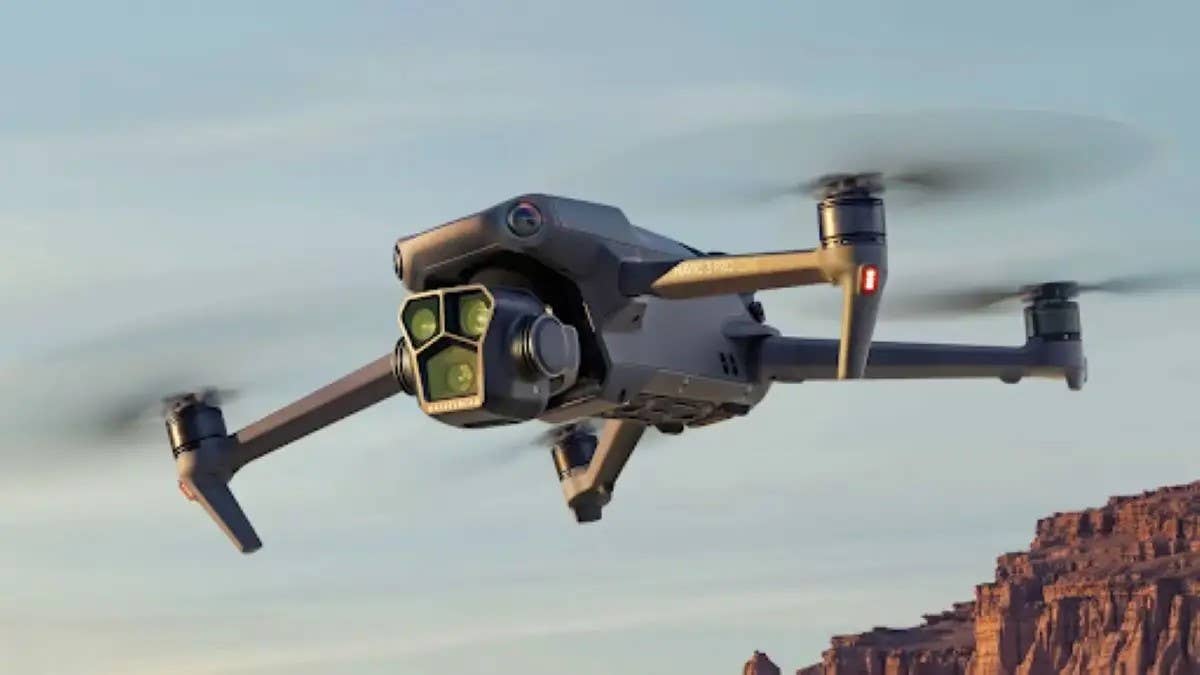Senators Urged to Adopt Anti-China Drone Measure
Florida Senator Rick Scott proposes an amendment to the 2025 National Defense Authorization Act that would effectively ban new sales of drones made in China.

DJI’s Mavic 3 drone is one of the most popular models among U.S. hobbyists. [Courtesy: DJI]
American lawmakers have not tried to hide their contempt for drones manufactured in China. Some have even gone so far as to call them "TikTok with wings" in reference to allegations of spying by the Chinese social media app.
Conspicuously missing from the Senate’s fiscal year 2025 National Defense Authorization Act (FY25 NDAA), though, is an amendment that would effectively ban new Chinese drone models from flying in U.S. skies.
The Countering CCP Drones Act made it into the House version of the FY25 NDAA, which passed in June with a vote of 217-199 and was largely backed by Republicans. But when contemplating its addition to the Senate legislation, lawmakers reportedly dropped the measure after hearing from over 6,000 public safety agencies that opposed the measure.
The bill is not dead yet, however. Last week, Senator Rick Scott (R-Fla.) introduced an amendment to the FY25 NDAA, cosponsored by Senator Mark Warner (D-Va.), that puts the Countering CCP Drones Act back on the table in committee discussions.
Even if the amendment is rejected in the Senate, it could resurface in reconciliations between the Senate and House due to its inclusion in the latter’s version of the NDAA.
The Countering CCP Drones Act is the culmination of U.S. government efforts to restrict Chinese-manufactured drones from dominating the country’s drone industry. Lawmakers have also accused the Chinese Communist Party of using the aircraft to spy on Americans, citing its ties to state-owned entities. At present, there is no conclusive evidence to verify the claims, and manufacturers such as DJI have pushed back on the allegations.
Chinese drones have been blacklisted by the Department of Defense, Department of Commerce, Department of the Treasury, and other federal agencies. The states too have taken aim at the aircraft, with Arkansas and Scott’s home state of Florida implementing the most sweeping bans.
One significant drone-related provision, the bipartisan American Security Drone Act, made it into last year’s NDAA. That measure prohibits U.S. federal agencies and federally funded programs from procuring drones manufactured in China or Russia.
Adding to the fervor, the FBI and Department of Homeland Security released a report detailing the threat of Chinese drones shortly after the NDAA was signed into law.
The Countering CCP Drones Act that will be contemplated by the Senate targets two manufacturers in particular, DJI and Autel. Those firms, and any subsidiaries, partners, or affiliates, would be added to the Federal Communications Commission’s covered list—essentially a list of companies with which the U.S. government refuses to do business.
The companies’ addition to the covered list would not impact DJI and Autel drones already being flown by hobbyists or private companies, for example. However, it would prevent the FCC from authorizing new equipment and prohibit newly sold drones from using U.S. communications infrastructure, effectively banning all sales in the country.
The legislation was first introduced in 2022 by Scott and Senators Marco Rubio (R-Fla.) and Tom Cotton (R-Ark.) in the Senate and by Representative Elise Stefanik (R-N.Y.) in the House.
After failing to move it forward, Stefanik in 2023 reintroduced the bill in the House, pushing successfully for its inclusion in the House NDAA released in June. That month, the measure was also reintroduced in the Senate but did not receive enough support to be added to that chamber’s version of the bill.
DJI drones in particular are widely deployed by U.S. law enforcement and public safety agencies, who opposed the restrictions because other models are typically more expensive and less effective. Police departments in states that have not banned Chinese drones are continuing to buy them in droves.
Their efforts may be for naught, though, if the Senate is receptive to Scott’s amendment. Even if senators reject it, the measure’s inclusion in the House version of the NDAA could give it new life in the reconciliation process.
Like this story? We think you'll also like the Future of FLYING newsletter sent every Thursday afternoon. Sign up now.

Sign-up for newsletters & special offers!
Get the latest FLYING stories & special offers delivered directly to your inbox






